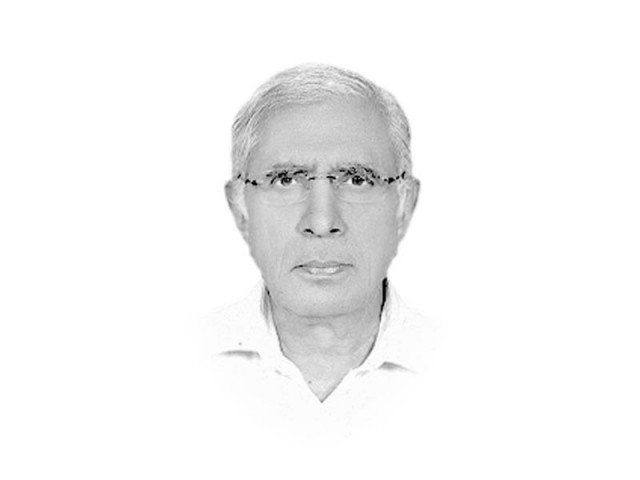‘No free lunch!’
Most foreign aid comes with strings attached

The writer served as executive editor of The Express Tribune from 2009 to 2014
Indeed, the rich in our country enjoy wide-ranging exemptions and concessions as well as low effective tax rates and can also engage in tax evasion with a degree of impunity, frequently with the connivance of the corrupt tax administration. The consequence is low direct tax-to-GDP ratio which is presumably less than 5 per cent. The figure for the same is 11 per cent in Malaysia, eight per cent in Thailand and six per cent in Turkey, India and Indonesia. In Pakistan, the share of direct taxes in the total tax revenues is estimated roughly to be 33 per cent, as compared to between 45-60 per cent in many Asian countries.
According to one study, only about one-third of the companies in operation file returns in Pakistan and among those, less than half declare taxable profits. Also, it is estimated that about five million people in Pakistan earn taxable income annually — but only one-fourth actually file returns. In effect, according to one estimate, one in 250 people file a return in the country as compared to one in 40 in India.
The tax base for corporate income tax is said to get eroded by almost half due to exemptions, deductions against labour and charitable contributions, and lower (presumptive) taxation of exports, etc. While many of these are in the nature of fiscal incentives, they have reportedly an implied revenue loss. Further, the performance of the Federal Board of Revenue in raising demands following company audits is said to be weak.
The consistent failure of successive governments to collect what is its legitimate due from its citizens earning taxable incomes had forced Pakistan since day one to fall back on foreign dole which does not come without a price. That is ‘there is no such thing as a free lunch.’
Most foreign aid comes with strings attached. At times it comes as rent for fighting other countries’ wars. Aid is also extended for helping the donors’ economy by making the recipient use aid to buy costly products and commodities produced in donor countries. The countries that receive the most support are the ones the donors are looking to protect or win over, or have security interests in: places like Israel, Afghanistan and Egypt. In Pakistan’s case too, this was true until about the time Trump appeared on the world scene. Most of the money the donors provide in these countries does not go to alleviate poverty but to add to their defence sinews.
The US food aid like the one under PL480 has been known to have often proved more helpful to American farmers and shippers than to the long-term food security of poor countries. That’s because American food aid programmes required buying from US farmers and shipping on US ships, and they generally do not allow local purchases or support of local farmers. Under this system, 99 cents out of each aid dollar goes back to donor countries.
Governments that receive most of their revenues (dole) from abroad are relieved of the need to raise taxes at home, and so do not need to justify their activities to their own populations. They, in fact, are forced to be accountable to the US, the World Bank, the IMF and other powerful institutions which control the purse strings. Often, their interests conflict or compete with those of the populace. When things go wrong, it’s hard for the average citizen to tell who is at fault. Is it the government, or the wealthy institutions that technically owe nothing to the country?
In aid-dependent countries, foreigners often have a weighty say in policy matters. There is no requirement to hear what people actually want or need. And the state, which is supposed to represent its citizens’ interests against the foreign aid apparatus, is often either too weak or too bought off to do so effectively.
Published in The Express Tribune, January 12th, 2019.
Like Opinion & Editorial on Facebook, follow @ETOpEd on Twitter to receive all updates on all our daily pieces.















COMMENTS
Comments are moderated and generally will be posted if they are on-topic and not abusive.
For more information, please see our Comments FAQ